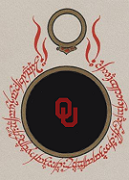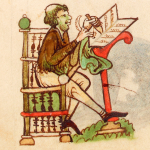|
When and how did the official split of the Empire happen? Did the Eastern and Western Roman Emperors just divide it between them or was it a gradual process?
|
|
|
|

|
| # ? May 10, 2024 00:07 |
DarkCrawler posted:Yeah, but he was a Greek. right, but he was still "crowned" Pharaoh when he took Egypt.
|
|
|
|
|
DarkCrawler posted:When and how did the official split of the Empire happen? Did the Eastern and Western Roman Emperors just divide it between them or was it a gradual process? Gradual process. The first to "split" the empire was Diocletian, who established the Tetrarchy. Under this system, there were four rulers: two Augusti, with one Caesar under each Augustus. Each ruler had his own section of the empire to oversee. This system collapsed almost immediately after Diocletian abdicated. The eventual sole successor to Diocletian was Constantine, who built Roma Nova (i.e., Constantinople) and made it the capital of the Empire. This was significant, as now the center of political power was in the east, and not the center/west as it had been with Rome. After Constantine, several emperors informally divided the empire with another co-emperor. This was the origin of the east/west split. These divisions were never formal or legal, only practical. In fact, on occasion for the 70 or so years between the end of Constantine's reign and Theodosius', emperors would rule alone, thus removing any distinction at all between east and west. Valentinian I and Theodosius I, for example, did this. Theodosius I would also be the last sole ruler of the whole empire. After Theodosius died, he left the eastern half of the empire to his older son, Arcadius, and the western half to his younger son, Honorius. From here on out the two halves were never again re-united in terms of rulership. The empire was still legally/technically one whole with two rulers, but the division from this point on grew increasingly real, as the two courts would squabble with one another and participate in mutual intrigues to increase their own standing and power. Edit: As a question of my own, does anyone know of any good books about Majorian? I know most of the people here are more knowledgeable about the republic and earlier empire, but the later empire/late antiquity has always been more of my thing. Majorian's article on wikipedia always stuck out to me, being arguably the last competent ruler of the west, successfully taking back some of the lands lost to the Germans. Judgy Fucker fucked around with this message at 16:43 on Jul 1, 2012 |
|
|
|
This might sound odd, but did the Romans have matches? I vaguely remember reading about them in a novel set in Rome.Veeta posted:some cool dealings with the Mongols do occur in the thirteenth century, as a number of Byzantine princesses* are married off to Mongol generals. This is from a while back, but it sounds really interesting - are there any good books on this? I'd say articles, but I don't have any JSTOR access or similar.
|
|
|
|
Masonity posted:Were Ulysses S Grant, Abraham Lincoln and Andrew Johnson non-American presidents? I mean, back in their day they only had around 270 years of ancestry in the USA, just as Cleopatra only had around 270 years of ancestry in Egypt. This comparison only holds if you think that they had mingled with the real Americans that preceded European settlers. Are the Afrikaner actually Africans or are they just a European enclave in Africa? I'd say the latter.
|
|
|
|
When did Italy become Italy? I mean, obviously a lot of different cultures and languages were based in the area we now call Italy, but did the Romans actually recognized Italy as a whole? Or did that start with the unification of Venice, Milan, Genua etc?
|
|
|
|
Samopsa posted:When did Italy become Italy? I mean, obviously a lot of different cultures and languages were based in the area we now call Italy, but did the Romans actually recognized Italy as a whole? Or did that start with the unification of Venice, Milan, Genua etc? Also, how similar were the peoples in Italy before the expansion of Rome - linguistically and culturally? Has Italy ever become Italy is another question - there still seems to be plenty of deeprooted parochialism today. From the point of view of Lega Nord Sicilians might as well be Africans.
|
|
|
|
Samopsa posted:When did Italy become Italy? I mean, obviously a lot of different cultures and languages were based in the area we now call Italy, but did the Romans actually recognized Italy as a whole? Or did that start with the unification of Venice, Milan, Genua etc? It was called Italy at the time. It was a geographical and provincial designation. Italy as a unified thing is in the 1800s and it's still a divided place culturally. North and south Italy are very different places.
|
|
|
|
Samopsa posted:When did Italy become Italy? I mean, obviously a lot of different cultures and languages were based in the area we now call Italy, but did the Romans actually recognized Italy as a whole? Or did that start with the unification of Venice, Milan, Genua etc? It's definitely in the ancient period. The Latin word Italia (or in Oscan, another big Italic language, Vitelu) originally (supposedly) referred only to a particular part of southern Italy, perhaps in the "toe" area. Over time it must have grown to encompass more than that and became the word for the peninsula as a whole (but NOT the islands- that's modern). Herodotus and Thucydides (400's B.C.) both refer to Italy and they may just mean the Greek bits on the edges or just the southern part or all of it. Now as to its meaning as a cultural/political unit, rather than just a geographic one, that's a big matter of debate. It was definitely in use in that sense by like 100 B.C., which can be seen on some of the coinage minted by the rebellious allies in the Social War (91-88ish B.C.). The more I think of it the more that might be the turning point, really. It certainly wasn't a political unit till after the Social War, when the Italians were given Roman citizenship. The difference is that when the Social War broke out, it was an alliance of different Italian peoples who were allied to or subject to Rome (though by no means all of them), and they used "Italy" as their collective word. They renamed one city "Italica" and had "Italia" or "Vitelu" on their coins. After the Social War, it became all "Roman" much more than it ever had been previously. You can't really call it a cultural unit before that (big asterisk here: that's a matter of debate). As to when it officially became one political unit, it was definitely a unit by the time Caesar crossed the Rubicon because that was the boundary between Cisalpine Gaul and Italy proper. tldr: between 88 and 53 B.C.
|
|
|
|
This is more immediately after Rome than Rome proper, but what happened to slavery after the empire collapsed? Did all the slaves basically turn into serfs in medieval manors? Did slavery survive in the Eastern Empire? I remember reading somewhere that the Church got rid of slavery among Christians to the cheering of the general populace, and the word slavery was pretty much hated throughout the middle ages, but feudal serfdom doesn't really seem to different in its effects on the common people.
|
|
|
|
Nenonen posted:Also, how similar were the peoples in Italy before the expansion of Rome - linguistically and culturally? Double postin' because this is going to be a big one.   I am going to go by linguistic group sort of. Latino-Faliscan:
Etruscan:
Osco-Umbrian: An Italic language group, related to Latin. Look at the wiki page for Italian languages, seriously. Italic is a linguistic group by the way, whereas Italian is more comprehensive. Etruscan is non-Italic, but Etruscans are Italians, get it? Most of the peoples on this list speak different languages but they're all related. Oscan is different from Umbrian is different from Picene. Oscan was probably the most common though and ranged over the central Apennines and the central eastern coast across to certain areas in the Bay of Naples.
Other languages that may or may not even be Italic, and peoples I can't remember poo poo about :
Will finish later, going to talk to IRL people now. BYE.
|
|
|
|
How much is known about training regimens for the Legions? Anything, pre- or post-Marian would be fine.
|
|
|
|
icantfindaname posted:This is more immediately after Rome than Rome proper, but what happened to slavery after the empire collapsed? Did all the slaves basically turn into serfs in medieval manors? Did slavery survive in the Eastern Empire? I remember reading somewhere that the Church got rid of slavery among Christians to the cheering of the general populace, and the word slavery was pretty much hated throughout the middle ages, but feudal serfdom doesn't really seem to different in its effects on the common people. I was under the impression slavery continued for a few hundred years after the 'fall' of the Empire. Right up until about the 1000s-1100s, I think it was, and probably a bit afterwards in some areas.
|
|
|
|
Masonity posted:ps. You never did get round to the whole Justinian Silk Worm story. Yes. First a little background. Silk is a big loving deal in the Roman Empire. It's incredibly popular among the rich, to the point where moralizers are railing against it and there's some concern about the sheer quantity of gold and silver being sent off to the Chinese to buy it. It is called the Silk Road for a reason. It's a classic trade imbalance, the Chinese are mostly just selling silk which, while not easy to produce, is not a limited resource. In exchange the Romans are losing gold and silver, both limited resources, and also were at least selling glass. At the time the Romans were the only people in the world capable of glassmaking, it was their equivalent of silk as far as exports go. No one really knew how silk was made for a while, but eventually Romans get to China and somebody finds out the details. We don't know how, simply that the whole silkworm thing gets back to the Romans. The Chinese are not willing to trade this technology, understandably, and silkworms are a closely guarded thing. Taking them out of China is a capital offense. China does not want anybody pushing in on their monopoly. Cue Justinian, the finest emperor the east ever saw. There are two ways this story may have gone. We have no way of determining which is true, so first I'll present the more James Bond one because it's better. Justinian decides that a silk industry would be beneficial to Rome. Not a big stretch. It will eliminate the need to buy silk from the Chinese, keeping the gold and silver within the Roman economy. Plus, now Romans will have silk to sell! And there are lots of people around the Roman world who would be happy to buy silk from the Romans, who can sell it at a sizable discount since they're not shipping across the entire loving planet. Given the state of the empire at this point, a boost to the economy is just what the doctor ordered. So, in ~550 Justinian acts. He gets two secret agents together, has them disguise themselves as monks, and sends them east. They manage to infiltrate a Chinese silkworm facility and hide some silkworms and silkworm eggs in a bamboo stick. Presumably they also find out how to raise silkworms properly. Then they hightail it back to Constantinople, and the Romans create their own industry around 554. The other version is that these are legitimate Christian monks operating in China, who happen to have the opportunity to steal some silkworms. Realizing the potential payday they have, they go back to Constantinople and sell the worms and knowledge to Justinian. In either case, the Romans begin producing their own silk and the Chinese monopoly is broken. The Romans maintain their own European monopoly until the Second Crusade, when the Crusaders attack Corinth and Thebes and make off with silkworms. Silk production gradually moves to Italy.
|
|
|
|
I know serial killer chat was a few pages ago but I imagine that much like how early modern serial or spree killers seem to have been seen as being werewolves and/or warlocks and/or possessed by evil spirits. I imagine that something similar might apply to Roman serial killers. That is to if a number of people started going missing or showing up dead it would rather be blamed on supernatural forces than human killers. But of course since there aren't really any sources this is just pure speculation.
|
|
|
|
Octy posted:I was under the impression slavery continued for a few hundred years after the 'fall' of the Empire. Right up until about the 1000s-1100s, I think it was, and probably a bit afterwards in some areas. E: Fixed some typos now I'm on an actual computer. Smart Car fucked around with this message at 10:06 on Jul 2, 2012 |
|
|
|
I'm not totally up on the transition away from slavery beyond that it wasn't acceptable in the medieval world. The client-patron system probably influenced the vassal-lord system quite extensively. This is completely based on vague recollection so someone please correct me, but. I believe serfdom actually begins to appear in late antiquity. The slave population steadily declines over time because Rome is no longer conquering new lands, and manumission is freeing people all the time--it's actually regulated because too many slaves are being freed. Then there are a series of plagues, and between the two the labor force is deeply undercut. So, plebs in the countryside begin to be tied to the land in order to ensure there will be laborers around to work the farms and feed everybody. This gradually formalizes and becomes serfdom.
|
|
|
|
Is there any solid (if not definitive) answers to the Romans in Ireland? I grew up acknowledging the idea taught in schools here; that there was never a major Roman influence, but have become increasingly sceptical of that over time. Stuff like the major finds in Wicklow and Wexford with Roman graves and the dig of a Roman fort at Drumanagh (15 miles from Dublin). I know that trade links were inexorable, what with them being geographically next door for 400 years, but I'd love to know to what extent they influenced each other. How would trade worked anyway, would they have relied on local traders to bring goods to an area under their control (e.g Ireland to Britain) or would Roman ships sail to areas not nominally under Roman influence? Asking this because I live in an area in which copper mining happened on a big scale in that period, which also happens to be the furthest from Britain you can get in this country. I understand that a lot of what I'm asking relies more on an understanding of how trade among the Gaels worked, which is a practical impossibility, what with the 'no written records'. As an aside, it's also interesting to note that one of the two main theories for the formation of Ogham, (the first Gaelic written script) was as a cryptic way to pass messages or leave markers that romans or latinate Britons couldn't understand. http://en.wikipedia.org/wiki/Ogham#Theories_of_origin edit: And another, unrelated; how true is Robert Grave's depiction of Claudius and that time period in general to historical record? I loved those books as a kid, but everything I've heard has indicated 'not at all' all tbe way up to 'somewhat okay' danquixotic fucked around with this message at 09:10 on Jul 2, 2012 |
|
|
|
danquixotic posted:Is there any solid (if not definitive) answers to the Romans in Ireland? Not as much as we'd like. There's a tiny bit of it mentioned in the Agricola, the legend of T˙athal Techtmar, and then the archaeology. I talked about the Agricola earlier, but you can just go read that. I don't know how widely it's accepted, but I think it's probably accurate and it matches up very well with the T˙athal Techtmar story and the archaeology. In brief, T˙athal Techtmar was a legendary exiled king of Ireland who then returned and wrecked poo poo. Pretty standard legitimate exiled son kind of story. What's interesting is that the dating of the legend matches up well with the dates of Agricola's supposed expedition to Ireland, and there have also been digs turning up lots of Roman poo poo. Not trade poo poo, which we find literally everywhere, but evidence of forts. Also, supporting an exiled king as a pretense to take over a new region is the kind of thing Romans did all the time. The truth of the legend is still too debatable, but I think the information is solid enough that we can say the Romans sent an expeditionary force over to Ireland at some point, likely under Agricola's command. They built forts and looked around, and for whatever reason decided Ireland was not worth conquering (or they didn't have the available resources and no one later thought it was worth trying again) and went back to Britain. So, Ireland remains independent. No doubt there was plenty of trade between it and Britain, though.
|
|
|
|
Grand Prize Winner posted:How much is known about training regimens for the Legions? Anything, pre- or post-Marian would be fine. The only surviving work (afaik) is De Re Militari by Vegetius, from the fifth century AD. It is a patchwork of things copied from earlier sources, and it reeks of 'those young people of today
|
|
|
|
Rome: Total War 2 has just been confirmed! Admit it, you're all interested.
|
|
|
|
Welp, gonna have to see my doctor about this erection.
|
|
|
|
More like we can't wait for the mods. But oh hell yes am I excited.
|
|
|
|
Grand Fromage posted:I'm not totally up on the transition away from slavery beyond that it wasn't acceptable in the medieval world. The client-patron system probably influenced the vassal-lord system quite extensively. Wikipedia has a pretty decent summary about slavery in Medieval Europe: http://en.wikipedia.org/wiki/Slavery#Middle_Ages Basically, not as prevalent as in under the Romans but still definitely present until the late middle ages. Generally slaves were people of other religions (Christians in Pagan societies and vice versa). You also had an awful lot of European slaves exported into the Islamic world both by the Vikings until they were fully christianised and also taken by muslim slave raids by Barbary Pirates (who operated until the 19th century but peaked in the 17th) or by muslim powers in Iberia etc. I'm a layman though so would welcome more expert input as well.
|
|
|
|
Krazyface posted:Rome: Total War 2 has just been confirmed! Admit it, you're all interested. They seem to be making ROME TOTAL WAR: The HBO series. Eurogamer reports: quote:Sega has announced that The Creative Assembly's next Total War game will be Rome 2, a sequel to its critically acclaimed 2004 strategy classic, Rome: Total War.
|
|
|
|
I need more info on the Roman military during the Punic wars, and how has that affected Carthage and vice versa? I also have a book on the roman legions called, Legions of Rome by Stephen Dando-Collins, and i noticed some legions were mixed italian-iberian, and Rome had recruited or focused alot on recruiting iberians into their legions, how latinized was iberia during the imperial period? Edit: plus whats the source of infatuation with emperors surrounding themselves with "exotic" guard units, Rome at one point had an imperial guard made out of germans (that aren't the preatorian guard, i'm not sure if this is after realizing the preatorians have become too power hungry), this tradition seem to have held by the byzantines with the Varangian guard. Fizzil fucked around with this message at 19:12 on Jul 2, 2012 |
|
|
|
Girafro posted:So it was Caesar's heir Octavian who changed the republic, how exactly did he do this? Was it just the armies he inherited from Caesar that allowed him to maintain his status or was he just as clever as his predecessor when it came to maneuvering his position? DarkCrawler seems to believe that Octavian was a bigger bad rear end than Caesar but honestly I barely know anything about him other than he inherited Caesar's throne. Posting this just because it's a badass scene. https://www.youtube.com/watch?v=F8hNaCnOdcw
|
|
|
|
It'll probably be like the either-or decisions they had in Shogun 2. Oh god, I can't wait. If they have a tech tree then maybe there'll be a way to make all your animal units incendiary. "Oh, your pigs are on fire, huh? Well so are my elephants! Hah, beat you to the punch, Romans!"
|
|
|
|
Fizzil posted:I also have a book on the roman legions called, Legions of Rome by Stephen Dando-Collins, and i noticed some legions were mixed italian-iberian, and Rome had recruited or focused alot on recruiting iberians into their legions, how latinized was iberia during the imperial period? To actually answer your question, early Roman Hispania is pretty drastically split between the Carthago-Phoenician settlements in the South and the Celt/Iberian/Basque/Whatever in the rest of it. You've got Massalian Greek sites there as well in the armpit area but those were fairly smalltime. Romans take over the Carthaginian sites during the Punic Wars, which the settlers seemed pretty happy with, given the alternatives. Those Carthaginian colonies were some of the first Romanized areas, and that's where the legions recruited. So the (substantial) Hispanian elements in the late Republican armies were North African/Phoenician by ethnicity, for the most part. Some modern folks get very Assimilation of the tribal areas took a very long time and arguably never fully succeeded.
|
|
|
|
Fizzil posted:Edit: plus whats the source of infatuation with emperors surrounding themselves with "exotic" guard units, Rome at one point had an imperial guard made out of germans (that aren't the preatorian guard, i'm not sure if this is after realizing the preatorians have become too power hungry), this tradition seem to have held by the byzantines with the Varangian guard. I think the idea was that foreign guards would be immune to palace intrigue and coups, since they owed their loyalty to the person of the emperor, rather than the office. Most (but not all) assassinations by the praetorian guard happened when the soldiers already had a new candidate for emperor in mind. This candidate was often the praetorian prefect.
|
|
|
Grand Fromage posted:I'm not totally up on the transition away from slavery beyond that it wasn't acceptable in the medieval world. The client-patron system probably influenced the vassal-lord system quite extensively. Yes, something much like serfdom showed up as part of Diocletian's tax reforms, though the formal tying to the land happened under Constantine to reduce tax evasion. So it actually did appear very early in late antiquity - it wasn't quite as ubiquitous as it became later, but serfdom was a Roman institution originally. If I recall correctly, various events in the Crisis of the Third Century combined with manumission and lack of conquest led to the following situation: A. Coloni (tenant farmers) are the only viable source of agricultural labor. B. Coloni are mostly dead broke and starving, so they enter into quasi-slavery credit contracts with their employer/patron to weather the crisis. C. The underlying causes of the Crisis are never really resolved so colonus status becomes hereditary, causing the formation of the permanent serf class. Before the system became law rather than informal practice, I believe it was possible to buy your ancestor's contract out and regain mobility; however, eventually farmers who weren't descended from contractually-bound coloni were forced into the status anyway to address taxation and labor shortage problems so that window of opportunity was only a few generations long, if that. When historians say that the average person in the West was likely to not even notice the fall of the Empire, this is a large reason why - some institutions we associate with the Middle Ages are continuous from Late Antiquity. The transition had already happened for most peasants long ago; urban Romans were the main group that experienced institutional change. The transition to serfdom rather than slavery coincided with the Christianization of the Empire, so that may have played into medieval Christian prejudices against slavery and for serfdom - I'm just speculating though, I've never read anything that even attempts to answer this question. The vassal-lord dynamic seems like a mixture of the German "strongman leadership" and Roman patronage culture to me, but it's hard to say which was the greater influence. Jazerus fucked around with this message at 21:04 on Jul 2, 2012 |
|
|
|
|
Fizzil posted:I need more info on the Roman military during the Punic wars, and how has that affected Carthage and vice versa? This has a bunch on the army in that period: Roman Manpower by Brunt And this one (its major argument is very disputed however): Hannibal's Legacy by Toynbee By the way you say "I need" I'm thinking perhaps this is for your homework. Go do it.
|
|
|
|
JerkyBunion posted:Posting this just because it's a badass scene. This is awesome, simply for the fact you can fast forward to 1933 at the Kroll Opera house when the vote on the Enabling Act was taking place with the SA just observing things of course and see how little some things change.
|
|
|
|
Amused to Death posted:This is awesome, simply for the fact you can fast forward to 1933 at the Kroll Opera house when the vote on the Enabling Act was taking place with the SA just observing things of course and see how little some things change. One of my other favorite scenes from Rome was when Julius Caesar was collecting debts from Egypt. He's asking for all debts paid including those incurred by previous pharaohs as well as debts to Pompey Magnus even though he's dead. The best part comes when Posca, Caesar's slave says that it's completely legal under the law. The egyptian eunuch comes back, "Roman law." Caesar's reaction is priceless. https://www.youtube.com/watch?v=FAM4V9Krrnw I'm just curious if it has any basis in history (as in the line itself being reported). I assume not.
|
|
|
|
JerkyBunion posted:One of my other favorite scenes from Rome was when Julius Caesar was collecting debts from Egypt. He's asking for all debts paid including those incurred by previous pharaohs as well as debts to Pompey Magnus even though he's dead. The best part comes when Posca, Caesar's slave says that it's completely legal under the law. The egyptian eunuch comes back, "Roman law." Caesar's reaction is priceless. Caesar gives no fucks about child kings.
|
|
|
|
furushotakeru posted:Caesar gives no fucks about child kings. Neither did Odoacer. Vae victis! 
|
|
|
|
House Louse posted:This is from a while back, but it sounds really interesting - are there any good books on this? I'd say articles, but I don't have any JSTOR access or similar. Book-wise I can't help you, but I can give you a link to a good article. (I nabbed it from JSTOR back when when I still had access to it.) It's not short (46 pages) but it was recommended to me by a tutor when I was doing an essay on thirteenth century Byzantine diplomacy. edit: Also, the slave trade was alive and well during the Middle Ages, though mainly around the eastern Mediterranean area. Muslim powers enslaved infidels and co-religionists alike, and although Christian rulers tended to be a bit sniffy about keeping the latter, many owned the former; merchants had no compunction in selling any sort of slaves they came across to the highest bidder. Venice, and Genoa in particular, played a huge part in the slave trade, which became incredibly lucrative to them after the Black Sea maritime trade routes opened up in the thirteenth century. Veeta fucked around with this message at 01:27 on Jul 3, 2012 |
|
|
|
Good not to overstate the lack of slavery in the middle ages. It was definitely around, I think it gets the reputation because it was frowned upon in most of Europe (especially the idea of enslaving Christians) and because it falls between the classical world and the colonial empires, which both involved massive numbers of slaves compared to anything you find in medieval Europe.
|
|
|
|
Just chiming in to say gently caress yeah Rome II. I know there's a games thread for this sort of thing, but I never did get to try out all the supposed realism/accuracy mods
|
|
|
|

|
| # ? May 10, 2024 00:07 |
|
Alan Smithee posted:Just chiming in to say gently caress yeah Rome II. I know there's a games thread for this sort of thing, but I never did get to try out all the supposed realism/accuracy mods This is as good a place as any. Earlier I recommended Extended Greek Mod (XGM), it is a good balance between way more realistic units and map without the complicated additions of Europa Barborum or Rome Total Realism. Gets rid of the silly fire pigs and ninjas and gives the greeks a much deeper unit roster.
|
|
|










































